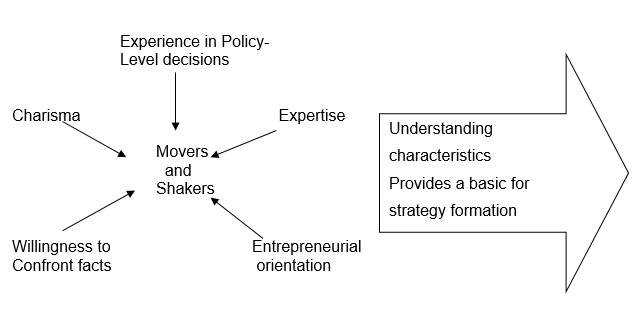Introduction
One aspect that differentiates excellent leaders from terrible, efficient leaders from unproductive, and preferred leaders from hated ones is the aptitude to assemble organizational source of wealth to make things happen. These qualities of a good leader are clearly seen in Sister Carol Keehan’s influential power in the accomplishment of Barrack Obama’s Health Care Reform Policy in the United States of America (American Nurses Association 2001b).
Power has various connotations and often pessimistic connotations. In this paper, it is used to denote the capability to acquire and apply resources necessary to realize nursing goals. Organizational power denotes to the power that subsists within healthcare organizations, this type of power is in the decision making process of organizations as motivated by Sister Keehan. In line with this, it is organizational power that nurses need to influence the conditions of nursing work.
With her vast experience in health care provision and her numerous years of good leadership knowledge, she has been able to attain a high honour and proficiency, thereby influencing and motivating the commencement of healthcare reform policy both in the American Legislative power and the Catholic health care organization (American Nurses Association 2001b).
In addition to this, as seen in sister Carol Keehan, personal power and influence is derived from the decisions they make on a daily basis about how they are going to organize their lives, Political scientists refer to an individual’s sense of political effectiveness- that is, the individuals feeling to an individual’s sense of efficacy like if he/she feeling that they can influence events through personal effort.
This contribution will make people feel more influential even if it is not all that successful. However, the opposite is equally true. If individuals believe that they are powerless to influence events and therefore do not even try, they are going to feel even more powerless. On the contrary, Sister Carol Keehan is different for she used her power and influence to influence the practice of nursing by categorically pointing out to nurses on how to design healthcare reform with the aid of Rosalie Silber Abrams work which is still in place at the moment.
Sources of power and influence
- Reward power- This is the possession of controlling influence to reward the way a person behaves toward other people, by presenting and influencing optimistic possibility due to a favourable combination of circumstances, or eradicating unhelpful outcomes just as the one possessed by Sister Carol Keehan
- Coercive power- the possession of the qualities required to enforce punishments for failure to conform to accepted standards of behaviour.
- Legitimate power- power established on the attributed standards, principles, responsibilities, and importance of the people that is influenced.
- Referent power- power grounded on recognizing with other populace who possess power.
- Professional power- power that applies series of actions advancing a principle from the knowledge, powers, and motivational influence of the individual exercising such influence just like that exerted by Sister Carol Keehan.
- Informational power- this type of power develops from the skill and chances of an entity to achieve and distribute important information (Jackson, John, & Speedy, 2004).
In line with the above stated sources of power, it will be observed or noticed that all these attributes are excellently seen and possessed by Sister Carol Keehan.
In Sister Carol Keehan’s influence and powerful role in the transformation of healthcare practice and her influential role in the health care reform policy, she is regarded as an inspirational leader and in one of her struggle in improving and enhancing the healthcare practice and policy, asserted that “A nurse-designed complex composition of knowledge as elements and their combinations would authorize quality staffing, high-quality incorporated set of approaches and principles, and progressing knowledge of work ability.
As a result, power holders like her; typically possess a combination of the above sources of power. However possession of power is not in itself adequate to make an individual powerful- his or her sources of power must be utilized as resources to accomplish required goals, just as seen in Sister Keehan (Daft, 2003).

Strategies for building productive relationships
As seen in Sister Keehan, the following factors were possessed and influenced by her (Burns, 1978):
- She developed unquestioning rapports by:
- Presenting loyalty.
- Provision of occasional response
- exerted reliable management behaviours
- Used borrowed power prudently by:
- aiding information analysis
- postponement actions pending when trust is influenced
- Exerting noticeable coalition by:
- Investing in good and communicative relationship
- Inventing modern strategies to maintain the relationship.
Reference
American Nurses Association (2001). Scope and standards of nursing informatics practice. Washington, DC: American Nurses Publishing.
Burns, J.M. (1978). Leadership. New York: Harper and Row.
Daft, R.L. (2003). Management. 6th ed. Mason, OH: Thomson South-Western.
Jackson, D., John, D., & Speedy, S. (2004). Nursing Leadership. Marrickville. Elsevier Australia.